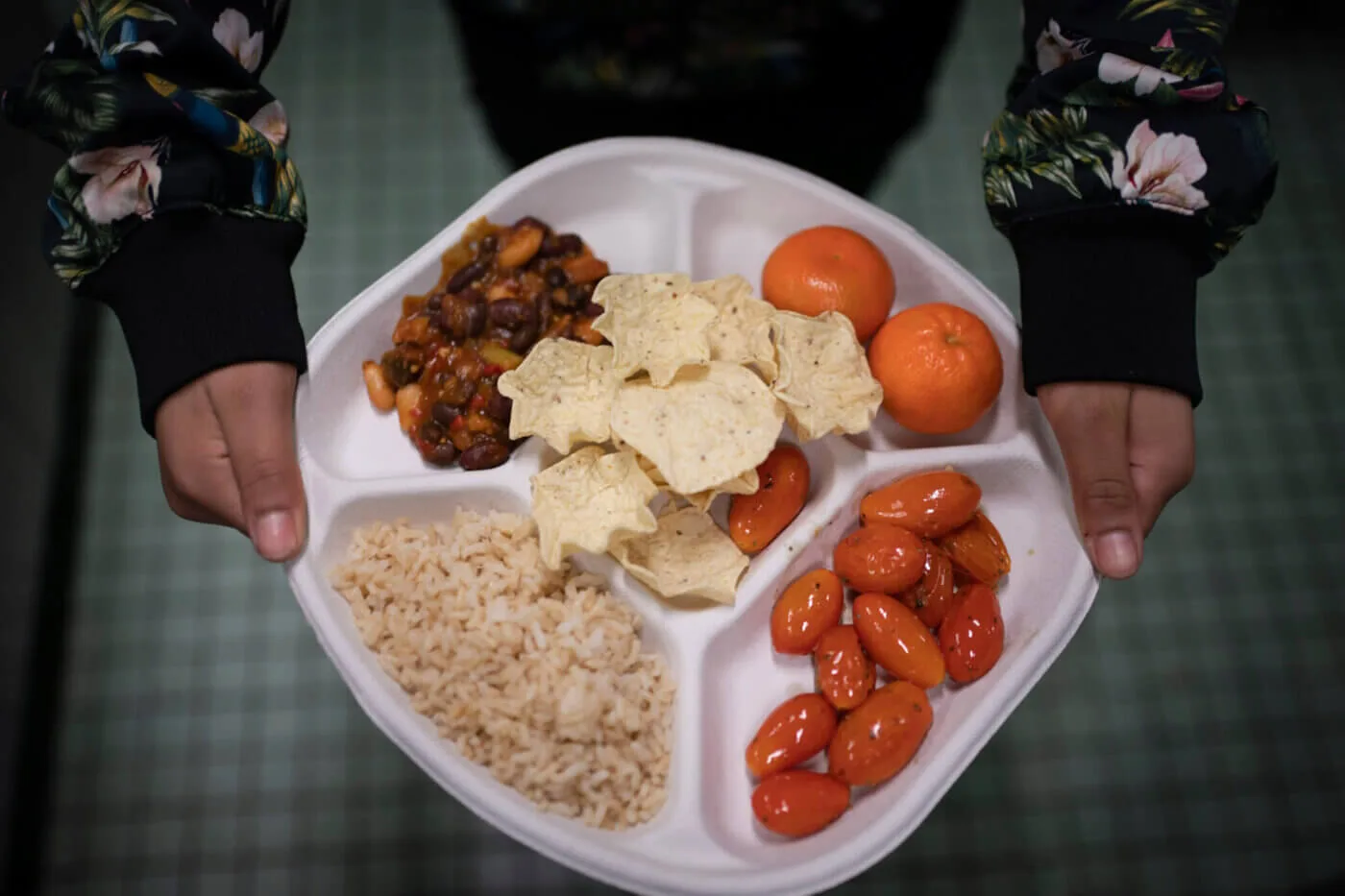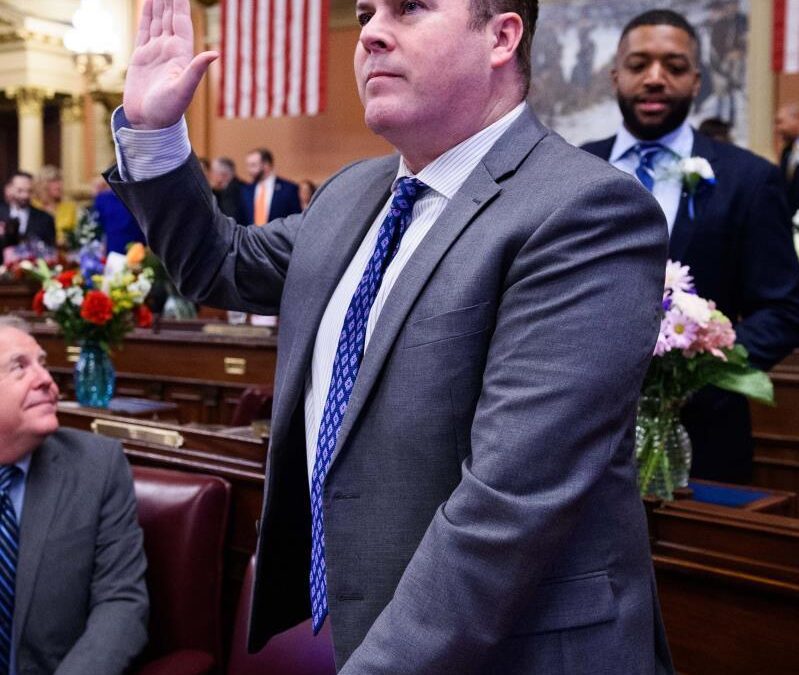
CORRECTS DAY/DATE TO FRIDAY, FEB. 10, 2023 INSTEAD OF SATURDAY, FEB. 11 - A seventh grader carries her plate which consists of three bean chili, rice, mandarins and cherry tomatoes and baked chips during her lunch break at a local public school, Friday, Feb. 10, 2023, in the Brooklyn borough of New York. A 2010 federal law that boosted nutrition standards for school meals may have helped curb obesity among America’s children _ even teenagers who can buy their own snacks, according to a study published Monday, Feb. 13, 2023, in the journal JAMA Pediatrics. (AP Photo/Wong Maye-E)
Sen. Lindsey Williams and Rep. Emily Kinkead have proposed taking $275 million from the state budget and using it for a free school lunch program aimed at combating child hunger and improving academic success.
For some children, a school lunch might be their only source of food.
That’s why state Sen. Lindsey Williams (D-Allegheny) and Rep. Emily Kinkead (D-Allegheny) are pushing for legislative action to reinstate the no-cost breakfast and lunch program at Pennsylvania K-12 schools.
Williams and Kinkead each recently introduced bills in the Senate and House calling for $25 million from the state budget to be used for the program aimed at combating child hunger and improving academic success by providing access to healthy meals.
“No child should go hungry or feel shame about not being able to afford a meal in school,” Kinkead said in a memo to the House. “Research has also shown time and again that school meals are as critical to learning as textbooks and teachers.”
At the start of the pandemic, the federal government provided funding and waivers from regulations to ensure that all students had access to breakfast and lunch whether they were learning in-person or remotely. Last year, Congress extended these pandemic school meal waivers through summer 2022, provided supply chain flexibilities, and increased federal reimbursements for schools.
At the beginning of the 2023-24 school year, once again only students with a family income of 185% of the poverty level or below will qualify for free or reduced school breakfast and lunch. For example, a family of four must be living on $36,075 or less to be eligible for free school meals. Additionally, because of rising supply chain costs, some schools have been forced to raise meal prices, meaning that families who were paying for meals before will now pay even more.
“The past three years have shown us how students and educators benefit when school meals are free for all kids,” Kinkead said. “With the challenges of the pandemic persisting and families facing higher costs across the board, now is not the time to take a step backwards — especially when the estimated cost to feed every student in Pennsylvania would be a small fraction of our overall budget.”
Politics

Philadelphia DA cancels arrest warrant for state Rep. Kevin Boyle on eve of Pa. primary
Philadelphia District Attorney Larry Krasner said a detective had sought the warrant against Boyle, a Democrat whose district includes a section of...

Influencers and creators find new ways to engage young Philadelphia voters
Rec Philly, a space for creators and influencers, teamed up with Show Up Strong to get hundreds of young Philadelphia residents engaged in the...

New Biden rule protects privacy of women seeking abortions
Under the new rules, state officials and law enforcement cannot obtain medical records related to lawful reproductive health care with the goal of...
Local News

Conjoined twins from Berks County die at age 62
Conjoined twins Lori and George Schappell, who pursued separate careers, interests and relationships during lives that defied medical expectations,...

Railroad agrees to $600 million settlement for fiery Ohio derailment, residents fear it’s not enough
Norfolk Southern has agreed to pay $600 million in a class-action lawsuit settlement for a fiery train derailment in February 2023 in eastern Ohio,...






